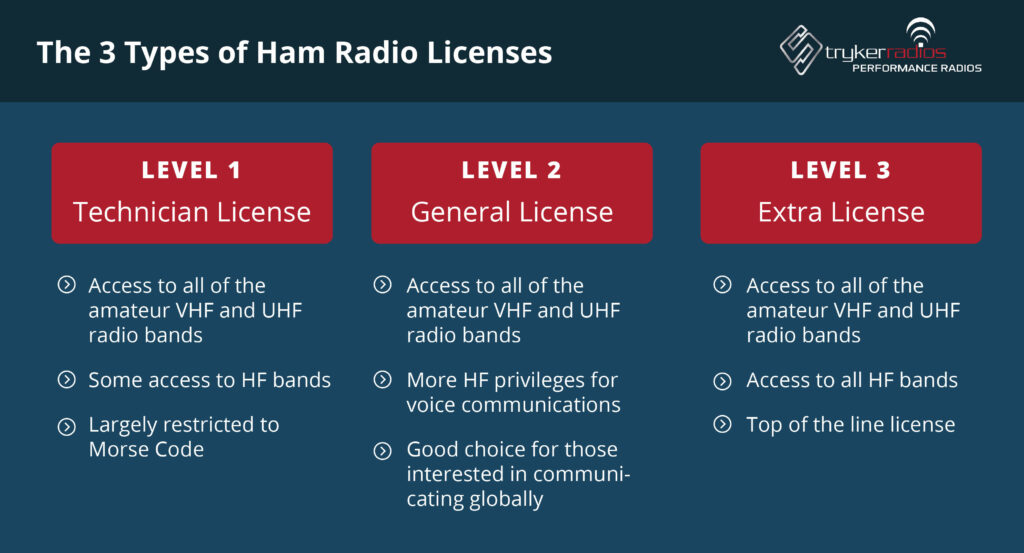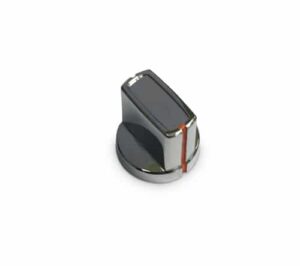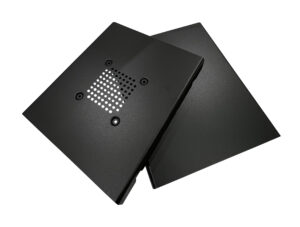More people every day are taking the plunge and getting their first ham radio license. Looking at the capabilities of amateur radio, it’s easy to understand why. The power and bandwidth available to amateur radio operators give them tremendous opportunities to develop a life-long hobby. They also enjoy huge advantages over CB operators.
Getting that Technician license is pretty simple if you know how to go about it. Here are the things you need to know before you get your first license.
What’s the Point of a Ham Radio License?
Power
Citizen’s band radios which require no license are limited to 4 watts and have an effective range of about seven miles. That pales in comparison to the 100 Watts allowed ham radio operators.
Range
Yes, power translates to range, but it’s not a fixed calculation. Ham operators may enjoy 25 times the power of CB operators, but they get far more than 25 times the range of CB operators thanks to the way radio waves propagate through the atmosphere.
Communications
That’s the name of the game. Being able to talk to people. On the road, being able to reach people for hundreds of miles is a distinct advantage over CB radio ranges. Not only that, but base stations mean you can keep in touch with the house from the road, or talk to your friends from home as you will, even if they’re in another country. In fact, amateur radio operators maintain their own communications satellites. Licensed operators can actually learn how to chat around the world via satellite if they wish.
Emergency Service
In disaster situations, communication can be a major problem. Cell towers can be wiped out by tornadoes, earthquakes, and floods. Electric service can go down. Even if cell service is available, there are often so many people trying to use it during a disaster that communications are almost impossible. Ham operators are on the front line, providing emergency communications with hand-held battery-powered radios when nothing else is functioning in a disaster area. No matter how remote, congested, or chaotic a disaster area is, amateur radios will find a way to bring communications where needed.
Fun
Regular competitions amongst Ham radio operators keep license holders on their toes and bond new friendships the world over.
What are the Three Ham Radio Licenses?
The types, qualifications, and abilities granted by the FCC to Ham license holders have changed over the years, and will likely continue to change slowly. Those changes have been almost entirely in the direction of expanding abilities and removing restrictions for license holders.
- The Technician license is the beginning for most ham operators. This gives beginners access to all of the amateur VHF and UHF radio bands, and some access to the high-frequency (HF bands). Technician licenses are largely restricted to using Morse Code. Morse Code is no longer part of the license test, so it’s up to you to determine if you want to learn and use it. Those with Technician licenses can use a portion of the 10-meter band for voice and digital communications as well
- General license holders enjoy all VHF and UHF privileges and more HF privileges for voice communications. If you are interested in communicating globally, you should plan to get your General license once you’ve become familiar with your abilities under the Technician license
- The Extra (or Amateur Extra) license is the top of the line. These amateur radio license holders have full access to all amateur frequency bands.
How To Get Your Ham Radio License
At this point you know there are tests involved, but how do you study for them, and how do you take the tests? If you’re not already familiar with it, now is a good time to learn about the American Radio Relay League or ARRL. They can always be found at arrl.org.
You can probably find ARRL members a lot closer than that, actually. ARRL has amateur radio clubs all over the nation, and individual members everywhere. In fact, the more remote and isolated an area is, the more likely you are to find at least one ARRL member there. Terrain that precludes access to Broadband or cellular service tends to spark interest in shortwave radio.
The ARRL serves as a VEC, or Volunteer Examiner Coordinator for the FCC. Your nearest ARRL club of any size is likely to provide study materials for the tests, study classes tailored to the test you want to take, and will administer the test on behalf of the FCC. They make getting a license as painless as possible.
What You Need To Know Before Getting Your Ham License
Before getting your new ham radio license, you need to be familiar with key aspects of amateur radio operations. Here are some important things to know:
1: Licensing Levels and Requirements
You know about the three licensing levels and the written examination required for each. The Technician license written test includes 35 questions. You do have to hold a valid Technician license before you can get a General or Extra class license, so this is always your first step. All of these FCC exams must be taken in person, so bear that in mind if that means you’ll need to travel. When you take the test, the ARRL members administering the test will grade it and let you know if you passed. If you did, they will submit the results to the FCC and your new license will arrive in the mail along with your new call sign.
All ham radio licenses are good for ten years and can be renewed by sending in a form. Your call sign will remain assigned to you until such time as your license lapses. Many older ham operators received their call signs 50 or 60 years ago. That’s why it’s not uncommon to see call signs used as vanity plates on cars or trucks.
Test Difficulty
The General class license test also has 35 questions. The Extra class license is 50 questions. They each take about an hour. The difficulty of the test increases with each level. Most people familiar with amateur radio can pass the Technician Class test with very little study. The General and Extra tests cover more advanced radio theory and operating classes, so these require more study.
2: Understanding Basic Radio Theory
A fair portion of the Technician test involves radio theory. You’ll need to learn the fundamentals about radio waves -what wavelength and frequency mean, and why one goes up when the other goes down. Various concepts like modulation, propagation, and how antennas work also appear on the test. The idea is to ensure you know at least enough to safely operate your radio equipment.
Recognizing that this is rather specialized information, the ARRL has put together study materials. They have license manuals available for each test. For the Technician class license, you can find the study guide for sale here. There are other resources available here, including a glossary, a list of all possible test questions, an online review, and practice exams.
3: Radio Regulations and Etiquette
Part of the testing, especially on the entry-level license is to ensure that novices learn the radio regulations and etiquette that comes with the limited privileges of the Technician class license. These restrictions vary by country, with the Federal Communications Commission being the governing body in the US. Respecting these rules will ensure that you are allowed to keep your operating privileges and become a valued member of the amateur radio community.
4: Operating Modes and Bands
Ham operators use various communication methods and radio bands. While you don’t need to learn all of these modes to start, you do need to know what they are. For example, while CW (Morse Code) is no longer required to get your tech license, you should at least know what CW is, how to recognize it, and how it’s generated. You can always decide later if you want to learn to use Morse Code yourself. It does open up a lot of opportunities for long-distance communications.
By the same token, you should familiarize yourself with digital communications, FM voice, television, and the other modes available to you. As part of that, you definitely need to learn which radio frequencies are allocated for each mode of communication depending on your license level. Running a transmitter using the wrong technology on the wrong frequencies is a surefire way to alienate the amateur radio community and endanger your license. That same community, however, will be more than happy to help you learn how to respect the restrictions of your class of license.
5: Equipment
While specific radio hardware is not part of the license exam, it obviously will be an early consideration. After all, a radio license isn’t very useful without a radio. This is another area where the National Association for Amateur Radio (ARRL) can play an important role in your new hobby.
There is no need to go out and spend a fortune getting started with amateur radio. Club members can provide invaluable advice on how to save money and maximize the return on your investment. A home radio station setup doesn’t have to be a huge production; used equipment can provide great cost savings.
Learning the theory behind radios, transmitters, antennae, and so forth can get clouded when it comes time to actually start putting them together into real systems. Cabling and connector questions, the importance of dummy loads, proper grounding, and other issues will come up that ARRL members can help with.
If you’re genuinely committed to long-distance communications or face a particularly challenging terrain, you might even be interested in a tower for your antennae. The regulations and permitting system for erecting even a small tower can be daunting. ARRL members can help you find companies qualified to handle towers and may be able to arrange for special pricing from the contractors.
6: Emergency Communication
Emergency Communications is the primary public service provided by amateur radio operators. Even if you think your personal circumstances like age or health would preclude your involvement in emergency assistance, there is almost certainly a role for you to play. Amateur radio service is composed of many parts. Your mobile or home radio setup may be exactly what’s needed to provide a relay from an emergency situation back to emergency service providers. Even the ability to simply set up your radio system to relay information in times of crisis can make a tremendous difference.
If you’re in a position to take a more active role in an emergency, knowing what kind of equipment will be most valuable to have is important. You can learn about that from the ARRL as well.
Local clubs and organizations
There are over 160,000 ARRL members across the US. They can be found in the biggest cities and most isolated wildernesses from Maine to Texas to Alaska. They have experience going back decades and a depth of radio theory that’s unparalleled. They also have a spirit of public service.
Joining a local amateur radio club or organization can provide valuable resources, support, and mentorship as you prepare for your license exam and begin operating. These groups often offer classes, exam sessions, and on-the-air activities to help you gain experience and knowledge.
By understanding these aspects and preparing for your license exam, you will be well on your way to becoming a knowledgeable and responsible amateur radio operator. By working with your local ARRL, you will open doors to both friendships and opportunities that will last a lifetime.



